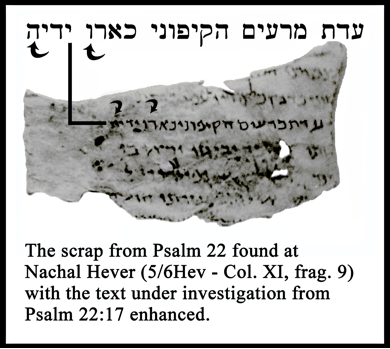Those mystery religion elements are creative speculation.
No the evidence is quite conclusive. The general public just isn't made aware.
I linked to specific mystery religion points and left out anything else
:20 a subject normally people are NOT lecturing to the general public
6:06
Basic Mystery cult, common features:
- Individuals “initiated” into the mysteries, ritually and by teaching sworn secrets about the universe. Something about the cosmos one needed to be saved, secrets. Many secrets are now lost.
- purpose was to gain salvation in the afterlife
- all use baptism and communion(communal meals)
- fictive kinship “brotherhood”
9:00 - Trends in Hellenistic religion
- Petra Pakkanen, Interpreting Early Hellenistic Religion (1996)
- Four big trends in religion in the centuries leading up to Christianity
- Christianity conforms to all four
9:16 Four Trends
- Syncretism: combining a foreign cult deity with Hellenistic elements. Christianity is a Jewish mystery religion.
- Henotheism: transforming / reinterpreting polytheism into monotheism. Judaism introduced monolatric concepts.
- Individualism: agricultural salvation cults retooled as personal salvation cults. Salvation of community changed into personal individual salvation in afterlife. All original agricultural salvation cults were retooled by the time Christianity arose.
- Cosmopolitianism: all races, cultures, classes admitted as equals, with fictive kinship (members are all brothers) you now “join” a religion rather than being born into it
18:30 All Mystery religions have personal savior deities
- All saviors
- all son/daughter, never the supreme God (including Mithriasm)
- all undergo a passion (struggle) patheon
- all obtain victory over death which they share with followers
- all have stories set on earth
- none actually existed
- Is Jesus the exception and based on a real Jewish teacher or is it all made up?
21:00
Pagan /Jewish element, Judea-Pagan Syncretism
Pagan - Savior son of God
Jewish - Messianic resurrection cult
Pagan - Undergoes ordeal by which he obtains victory over death
Jewish - based on blood atonement theology (substitutionary sacrifice)
Pagan - which he shares with those initiated into his cult for individual salvation
Jewish - adapting Passover and Yom Kippur
Pagan - in a universal brotherhood
Jewish - first by circumsision, then without
Pagan - through a baptismal invitation and communal meal
Jewish - through a baptismal invitation and communal meal
27:00 mysteries
Elusinian Mysteries = Mycenaean + Hellenistic
Bacchic Mysteries = Phoenician + Hellenistic
Mysteries of Attis and Cybele = Phrygian + Hellenistic
Mysteries of Baal = Anatolian + Hellenistic
Mysteries of Mithras = Persian + Hellenistic
Mysteries of Isis and Osiris = Egyptian + Hellenistic
Christian Mysteries = Jewish + Hellenistic
28:00 Christian Pesher (combining disparate passages in scripture that reveals “hidden messages”)
29:15 examples of Pesher logic taken from Old Testament and used for Jesus
32:00 Baptism, Christian version is different from Jewish/John the Baptist version of baptism. Differences are the same in all mystery religions.
- symbolic sharing of saviors ordeal
- to be born again (Osiris cult)
- united into brotherhood
- to be saved in afterlife
- cleaned of sin (Bacchus, Osiris, Mithras)
- baptism for dead (Paul mentions this 1 Cor, 15: 29)
37:05 Eucharist in Mystery religions
- become one with savior
- to be united in brotherhood
- saved in afterlife
- Lords Supper
- Rememberence, flesh/blood/death, 1 Cor 11:24-26
Christian Lords Supper is distinct in Jewish ways
38:50 Mysteries in scripture
1C. 4:1 We are entrusted with the mysteries God has revealed
R. 11:25 (Do not) be ignorant of this mystery
R. 16:25 (the) message I proclaim about Jesus Christ is in keeping with the revelation of the mystery hidden for long ages past but now revealed
1C. 2:6, 7 (We) speak a message of wisdom among the mature….(and) declare God’s wisdom, a. Mystery that has been hidden
1C. 15:51 Listen I will tell you a mystery: we will not all sleep, but we will all be changed
1C. 3:1-2 I could not address you as people who live by the spirit but as people who are still worldly - mere infants in Christ. I gave you milk, not solid food, for you were not ready for it. Indeed, you are still not ready. (Milk and solid food is mystery cult terminology)
H. 5:13-14 Anyone living on milk, being still an infant, is not acquainted with the teaching about righteousness. But solid food is for that mature. (Clearly conceiving the religion in mystery terms)
Mark 4:11-12 (Jesus) told them, “The secret of the kingdom of God has been given to you. But to those on the outside everything is said in parables, so (they won’t understand)”
Dead giveaway Mark is conceiving the teachings in mystery cult terms
42:00 Jesus becomes the Temple. Kamran sect was also anti-temple. Jews were looking for ways to replace temple cults because of corruption etc….
Jesus gives permanent atonement and so on.
42:52
Christianity is a Jewish Mystery religion, syncretic, henotheistic, individualist, universal brotherhood, savior son of God with passion and myth, baptism, Lords supper as communion for salvation, mysteries reserved for initiated.
12:34 Savior deities, dying/rising, pre-Christian, Osiris, Adonis, Romulus, Zalmoxis, Inanna (oldest 1700 B.C., female deity resurrected in 3 days)
www.richardcarrier.info




